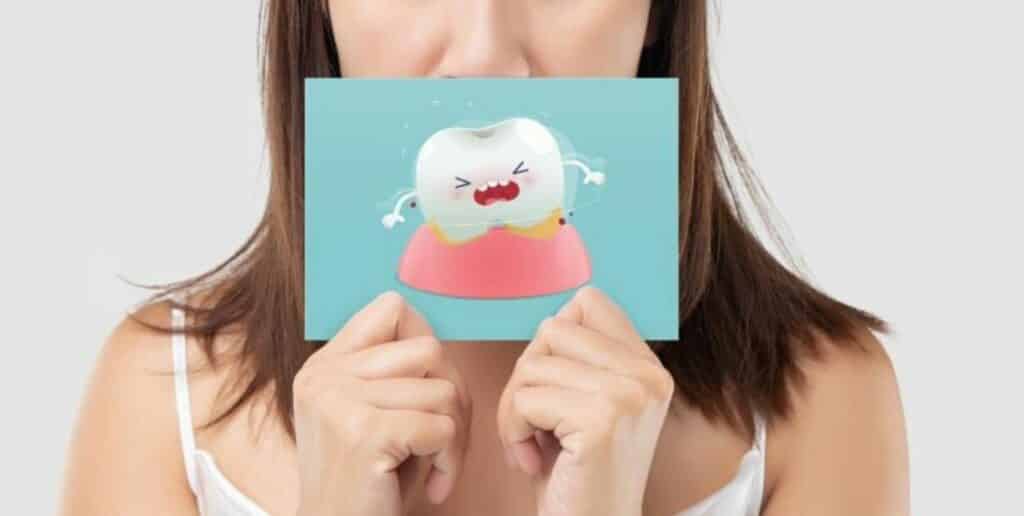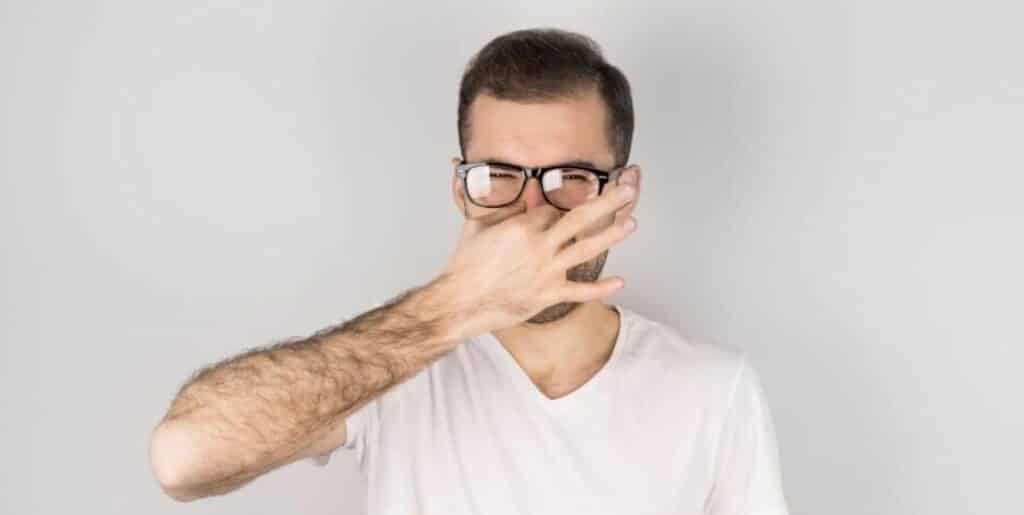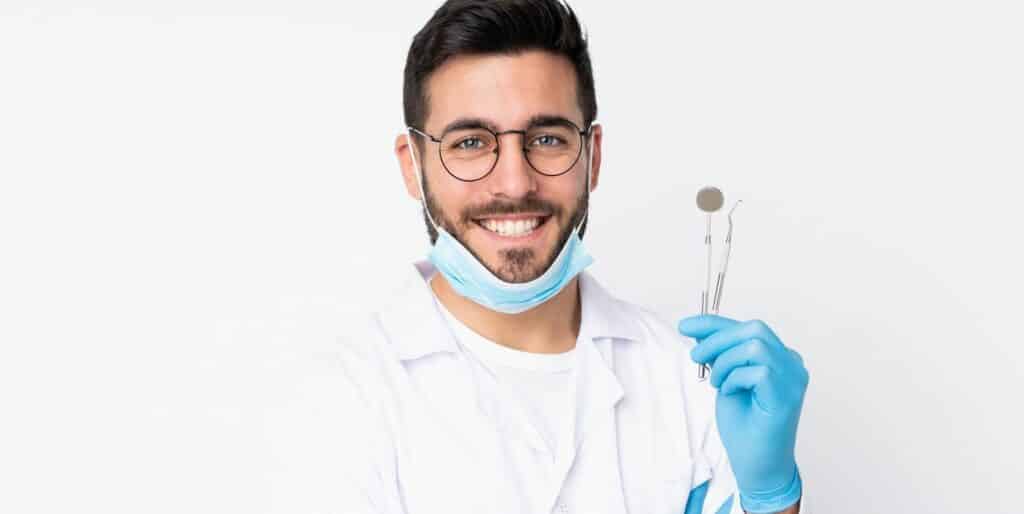As many as 90% of the causes of bad breath are due to neglected oral hygiene and dental problems such as gum disease or tooth decay. Bad breath is also influenced by taking certain medications, smoking or alcohol. Whatever the cause, bad breath can spoil many a meeting, embarrass you and lower your self-confidence. To make matters worse, it is not always chewing gum or even brushing your teeth that can help get rid of the problem.
So what can you do? We present proven ways to get rid of bad breath, but before we get to that let's look at the causes.
Causes of bad breath
The main causes of bad breath are negligence in oral hygiene and the dental problems that often follow. These include gum disease, tooth decay or periodontitis, which also has other serious consequences. Untreated periodontitis can lead to loosening of the teeth and, as a consequence, tooth loss. Importantly, this disease does not only affect older people; it can appear as early as in their thirties. If you would like to learn more about this subject, we recommend our article "Modern periodontitis treatment in the UK with Vector Paro Pro".
The following are mainly responsible for bad breath Volatile sulphur compounds. These are emitted during the fermentation of substances contained in food.

People who wear dentures are much more likely to struggle with bad breath. If they fit incorrectly, food residues can get under them. This is why not only good oral hygiene, but also the correct cleaning of the dentures is so important. The same applies to people who wear braces. You can find out how to take care of your teeth in this case in our material "How to care for teeth with braces".
Among other causes bad breath are:
- oral ulcers such as aphthous ulcers (more about them here), ringworm, abscesses
- ENT diseases, e.g. chronic sinusitis, purulent tonsillitis
- taking certain medications, especially those that reduce saliva production
- salivary gland diseases and dry mouth
- diseases, i.e. oral cancer, diabetes, kidney failure
- smoking and drinking alcohol
Bad breath after a night out
Most often, bad breath occurs in the morning. The cause is putrefactive bacteria multiplying in the mouth. The reason is the reduced secretion of saliva during sleep, which is responsible, among other things, for cleaning the surface of the teeth.
And how do you get rid of bad breath after a night out? Simply brush your teeth.
However, it may happen that, even though you brush your teeth and rinse them with liquid, you still have bad breath. In such a situation, the cause lies deeper - more precisely in the stomach, and it is then best to consult your doctor.

Ways to get rid of bad breath
The simplest way is oral hygiene, i.e. brushing your teeth after every meal, flossing and rinsing with mouthwash. You can read about how to brush your teeth properly without damaging your gums, while cleaning as much surface area as possible in our article "How to brush your teeth properly".
Don't forget your tongue, it's where a lot of bacteria accumulate. They form a plaque that is responsible for bad breath.
And be sure to make regular visits to the dentist. Firstly, the dentist is able to spot even the smallest changes in the mouth at an early stage and start treatment, thus stopping the development of the disease in question. For you, this saves time and money in addition to ensuring healthy teeth. IMPORTANT! Only in rare cases is bad breath caused by diseases unrelated to the teeth.
Secondly, regular in-office hygiene protects your teeth from many dental problems and allows you to enjoy a beautiful and healthy smile. You can read exactly what this involves in our article "Dental hygiene in the UK - scaling, tooth sandblasting, polishing and fluoridation".

Emergency relief from bad breath
You don't always have the opportunity to brush your teeth. In such a situation, it is a good idea to carry a small bottle of mouthwash, chewing gum or breath-freshening sweets.
Remember, however, that this is only an ad hoc solution and help get rid of unpleasant odour from the mouth for up to two hours. A similar effect can be achieved by eating any meal.
If you don't have any gums or liquid with you or don't have the opportunity to eat something it may help to rinse your mouth with water. This will reduce the amount of bacteria in your mouth.
Onions and garlic - nothing will help here
Both onions and garlic have a very strong taste and smell. Neither chewing gum nor even brushing the teeth will help to remove the latter from the mouth. The unpleasant mouth smell will persist for several hours afterwards.
Why is this so? Contained in onions and garlic, the volatile sulphur compounds and allicin, with their characteristic smell, penetrate the blood during digestion and with it enter the lungs and can be felt in the exhaled air for many hours.
If you don't want to struggle with bad breath caused by onions or garlic, it is better to avoid these products.

A visit to the dentist as a way out of bad breath
If you are still struggling with bad breath despite your hygiene regime, make an appointment. It is likely that your bad breath is the result of dental problems.
If you have healthy teeth, fresh breath will depend only on you and your oral hygiene.
We would like to remind you that at our practice you can spread the cost of your treatment in instalments. You can read more about this in our article "Teeth on credit: dental treatment on hire purchase". Importantly, the system is 100% safe and regulated by the Financial Conduct Authority (FCA number 619628), the government's financial regulator.
And if you have previously had treatment in Poland or at another dental practice in the UK, we welcome you with your treatment plan. We wrote more about what a treatment plan is, why you should review it and often save money in the process, in the material "A dental treatment plan, i.e. a cost estimate for your teeth".
If you have any questions, please feel free to contact.

